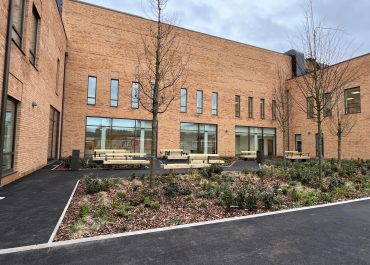Here at Western Build, we’re passionate about delivering outstanding construction projects through innovative thinking and exacting standards. Indeed, with today’s environmental and labour challenges, there are few better ways to achieve these exacting standards than through offsite construction: a modern building method that creates structures within a quality-controlled environment. From cost-effectiveness to environmental sustainability, we’ve highlighted four reasons to opt for offsite construction.
Despite the many benefits offered by offsite construction processes, uptake of this building method has been relatively slow across Britain and Ireland. As highlighted in a recent report by WPI Economics, research suggests that only 7% of building projects in the United Kingdom are completed using offsite processes. This pales in comparison to Germany (9%), Japan (12-15%) and Sweden (20%).
Western Build: Pioneers in Offsite Construction

Whilst uptake has lagged behind in Britain and Ireland, Western Build has pioneered this building technique across both islands. Launched in 1982 and constructing buildings using offsite construction methods since 1987, we’ve embraced these techniques for the wide range of benefits they provide to our company, our customers and our environment. Keep reading to learn more.
Benefit #1: Offsite Construction is More Sustainable

Like virtually all sectors of industry, construction must do more to alleviate its impact on the environment; both in terms of carbon released and waste produced. Whilst some players in the industry have been responding to this challenge for several years, the vast majority of the industry is experiencing a wake-up call. Indeed, whilst the average large architecture, engineering, and construction firm plans to spend €3.5m on improving their sustainability efforts in the next five years, 3 in 4 construction firms report sustainability initiatives led to better use of resources.
The fact is that offsite construction offers a new way of working which places sustainability and minimal environmental impact at its core, and there are a few reasons why this is the case. Firstly, offsite building requires less heavy machinery, and less energy consumption by default. Secondly, the transportation of finished construction materials to the site uses minimal vehicles, leading to less fuel expenditure and carbon emissions. Finally, wastage is cut substantially, alleviating pressure on landfill whilst helping companies to make savings by buying in bulk.
Benefit #2: Offsite Construction is More Precise & Efficient

The assessment of a building’s energy performance and safety standards can only be as good as the building’s adherence to design. Thanks to building elements being completed in-factory as opposed to on-site, meeting these specifications precisely is much easier. With fabrication and assembly of components occurring in tightly controlled factory environments, offsite processes ensure a higher level of quality assurance and a higher quality end product.
Fundamentally, offsite construction doesn’t have to allow the same margin for error that can sometimes be necessary in onsite projects. However, that’s not the only benefit provided by offsite’s natural precision and efficiency. With materials being efficiently measured, cut and constructed in in-house manufacturing facilities, you can expect less waste; as well as a reduced need for heavy machinery and construction personnel.
Benefit #3: Offsite Construction Guarantees Safer Working & Safety Conditions

Construction has been traditionally seen as an industry that is fraught with health and safety risks: an occupational hazard that comes with working on live building projects. However, offsite construction pledges to transform the construction industry’s health and safety landscape.
Whilst outside working conditions can be unpredictable due to variables of weather and visibility, a factory can be seen as the opposite. With construction materials being produced in-house, conditions are the same in every project which makes errors significantly less likely. Meanwhile, common risks like slips, falls and equipment-related incidents are virtually eliminated within a factory setting.
Aside from the safety benefits that offsite construction offers to those working in the industry, the end user can also enjoy enhanced safety benefits thanks to the improved indoor air quality it provides. With a building’s structure completed in factory conditions using dry materials, the possibility of moisture becoming trapped in framing materials is reduced, which in-turn reduces the likelihood of mould, dust mites and other destructive organisms.
Benefit #4: Offsite Construction is Fast, Cost-Effective & Less Disruptive

Whilst many on-site building projects can experience significant delays due to labour shortages, supply chain disruption, adverse weather conditions and other unforeseen challenges, the chances of these delays occurring in offsite construction challenges are virtually eliminated. Put simply, offsite construction is much faster, and can reduce your build programme by up to 50%.
Aside from that major benefit, offsite construction is one of the most cost-effective build options available in today’s market. This is thanks to a combination of offsite processes producing less waste; producing materials faster and with less mistakes, as well as requiring less skilled labour costs.
Finally, offsite construction is less disruptive to surrounding businesses, organisations and residents, and this isn’t a benefit that should be brushed off. Few things attract local complaints like a loud and disruptive building project, with their heavy machinery and constant convoys of delivery vehicles. With the vast majority of work being done inside a factory, you can expect these disturbances to be eliminated.
Start Your Offsite Project with the Pioneers at Western Build
Whether you’re a business, organisation or an individual seeking to buy their first home, our expert offsite construction services can make your building dream a reality. To get started, contact us for a free consultation. Alternatively, browse our full range of projects.


